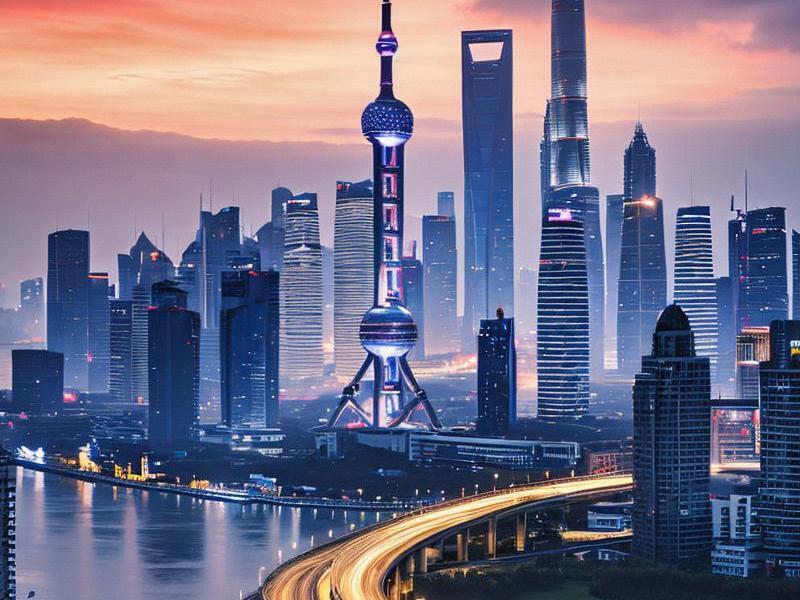Shanghai, a vibrant city on the eastern coast of China, stands as a beacon of modernity, innovation, and cultural richness. As the largest city in China and one of the world's most dynamic metropolises, Shanghai continues to evolve, blending its historical heritage with cutting-edge advancements.

Nestled at the mouth of the Yangtze River, Shanghai has long been a crucial hub for trade and commerce. Its strategic location has made it a melting pot of cultures, languages, and traditions. Over the centuries, Shanghai has transformed from a modest fishing village into a global financial center and a cultural powerhouse.
The city's skyline is a testament to its rapid urban development. Iconic landmarks such as the Oriental Pearl Tower, the Shanghai Tower, and the Jin Mao Tower dominate the skyline, symbolizing Shanghai's status as a global metropolis. These skyscrapers house some of the world's leading financial institutions, multinational corporations, and innovative tech companies.
Shanghai's Pudong district is a prime example of the city's economic prowess. Once a rural area, Pudong has been transformed into a modern financial district, home to the Shanghai Stock Exchange, the World Financial Center, and the iconic Lujiazui skyline. The Bund, located across the Huangpu River, offers a striking contrast with its historic architecture and serves as a reminder of Shanghai's colonial past.
Innovation is at the heart of Shanghai's success. The city has invested heavily in research and development, making it a hub for technology and innovation. Zhangjiang Hi-Tech Park, one of China's premier technology parks, houses numerous high-tech companies, startups, and research institutions. Shanghai is also home to the China (Shanghai) Pilot Free-Trade Zone, a key initiative aimed at promoting trade liberalization and economic reform.
上海私人外卖工作室联系方式 The city's commitment to sustainability is evident in its efforts to reduce carbon emissions and promote green development. Shanghai has implemented various initiatives to improve air quality, enhance public transportation, and promote renewable energy. The Maglev train, which connects Pudong International Airport to the city center, is a prime example of Shanghai's focus on sustainable transportation.
Culturally, Shanghai is a vibrant city that celebrates its rich heritage while embracing modernity. The city is known for its art galleries, theaters, and cultural festivals. The Shanghai Museum, one of the largest and most prestigious museums in China, houses an impressive collection of Chinese art and artifacts. The city's art scene is thriving, with numerous galleries and contemporary art spaces showcasing works by both local and international artists.
Shanghai's culinary scene is another highlight, offering a diverse range of flavors and cuisines. From traditional Shanghainese dishes such as xiaolongbao (soup dumplings) and shengjianbao (pan-fried buns) to international cuisine, the city's food culture reflects its cosmopolitan nature. The French Concession, a historic area with cobblestone streets and charming architecture, is a popular destination for dining and shopping.
Education is a cornerstone of Shanghai's development. The city is home to some of the best universities in China, including Fudan University and Tongji University. These institutions attract students and researchers from around the world, contributing to Shanghai's reputation as a global center of learning and innovation.
上海品茶工作室
Shanghai's transportation network is one of the most efficient in the world. The city boasts an extensive metro system, which connects various parts of the city and makes commuting convenient. The Maglev train and the high-speed bullet trains further enhance connectivity, allowing residents and visitors to travel quickly and efficiently.
Tourism is a significant contributor to Shanghai's economy. The city attracts millions of visitors each year, drawn by its historical landmarks, cultural attractions, and vibrant nightlife. The Bund and Nanjing Road are popular tourist destinations, offering a glimpse into the city's rich history and modern vibrancy. The Yu Garden, a classical Chinese garden, provides a serene escape from the bustling city life.
Despite its rapid development, Shanghai remains committed to preserving its historical and cultural heritage. The Old City, with its narrow streets and traditional architecture, offers a glimpse into the city's past. The Yu Garden, a UNESCO World Heritage Site, is a testament to Shanghai's rich cultural history.
爱上海419 Shanghai's international influence is evident in its role as a host to major global events. The city has hosted numerous international conferences, exhibitions, and sports events, including the 2010 World Expo. These events have showcased Shanghai's ability to organize large-scale events and its commitment to global cooperation.
The city's government plays a crucial role in shaping Shanghai's future. The Shanghai Municipal People's Government has implemented various policies to promote economic growth, improve living standards, and enhance the quality of life for its residents. Initiatives such as the Smart City project aim to leverage technology to improve urban management and services.
Shanghai's future looks promising, with continued investment in innovation, sustainability, and cultural development. The city is poised to remain a global leader in finance, technology, and culture, attracting talent and investment from around the world.
In conclusion, Shanghai is a dynamic metropolis that exemplifies the best of China's modernization efforts. Its blend of historical heritage and cutting-edge advancements makes it a unique and fascinating city. As Shanghai continues to grow and evolve, it remains a symbol of China's rise as a global power and a hub of innovation and culture.